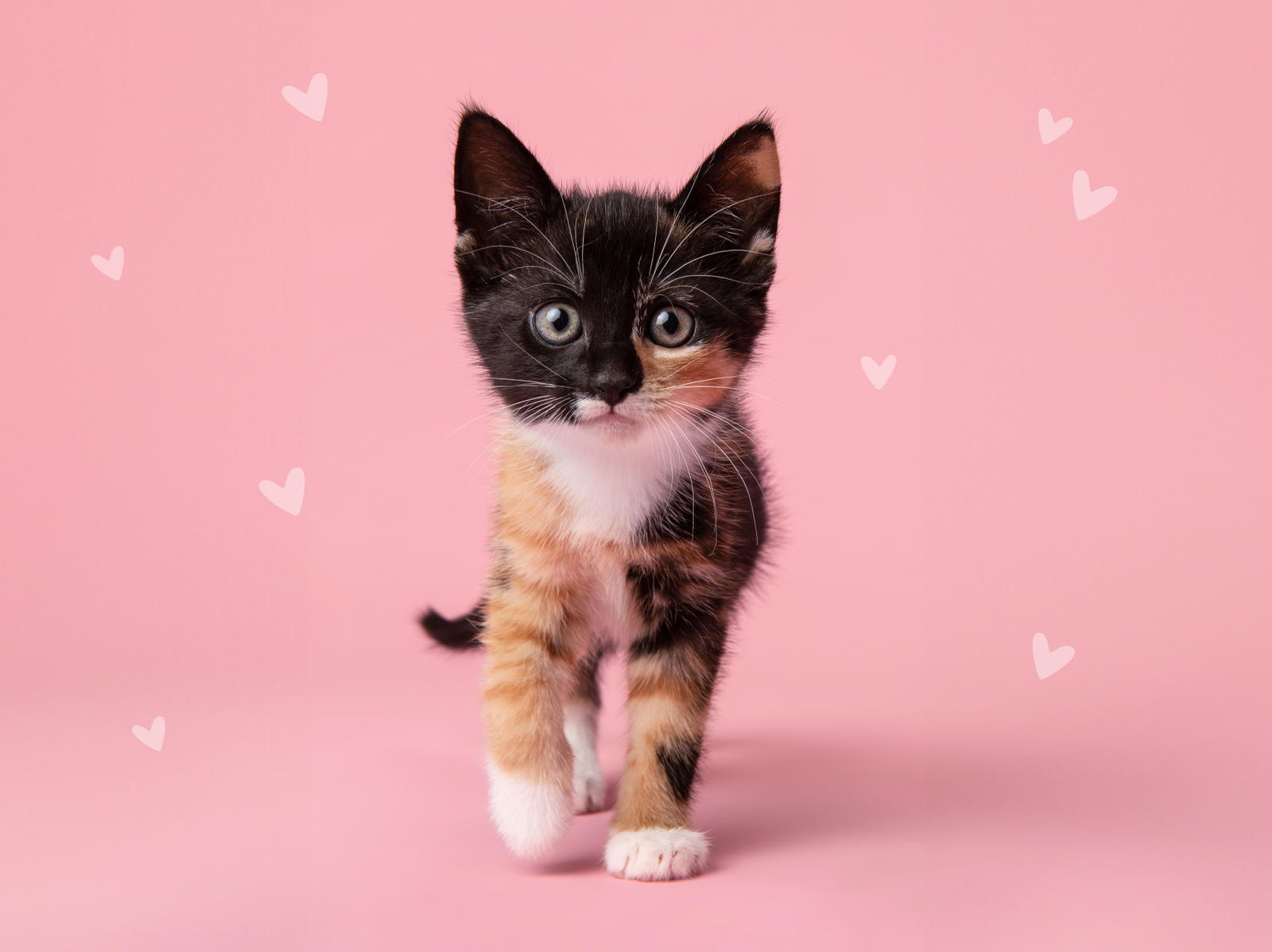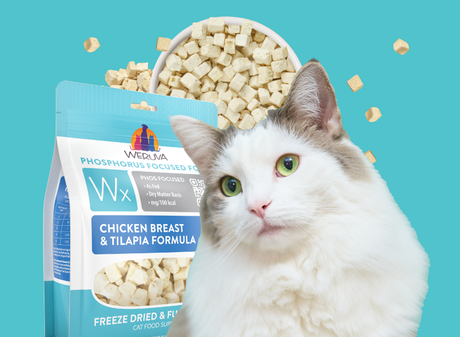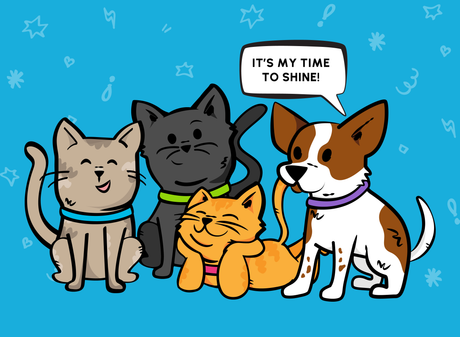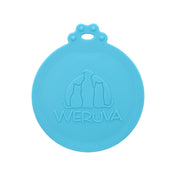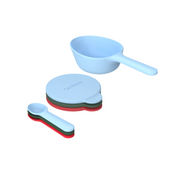Welcoming a new kitten into your home is a joyous occasion partnered with anxious excitement about what is to come. Understanding a kitten's unique needs is vital to ensuring they start life off on the right paw. This guide will teach essential kitten care tips, including growth, development, socialization, and nutrition.
Before bringing your new feline friend home, it's essential to understand fundamental questions like, "Are kittens hard to take care of?" or "What do kittens like to eat?" Understanding a kitten's development can go a long way toward making the transition easier for both of you.
From litter box training to providing proper playtime and enrichment, you'll want to be sure you are taking the necessary steps to raise a happy and healthy young cat.
Kitten Growth and Development
During the first few months of their lives, kittens experience rapid growth and development. Newborn kittens are tiny, weighing only around 3-4 ounces and measuring 3-6 inches in length. As they grow, they will gain weight and increase in size at a remarkable rate.
Providing young kittens with a nutritious diet, plenty of exercise, and regular veterinary check-ups to support their growth and development is essential. By understanding their growth patterns and meeting their needs, you can help them reach their full potential and become strong, healthy adult cats.

When Do Kittens Become Adults?
There are different stages and milestones in a cat's life. Most kittens are considered adults at one year old, but specific markers, including physical and behavioral changes, can signal this transition earlier. For some more giant breed cats, like Maine Coons, it can take up to 18 months to 2 years to reach their full size.
As your kitten grows, you should adjust its care accordingly. Please consult your vet regularly during this time, as this will help you understand how your kitten is growing and what care it needs.
The Crucial Socialization Period
Between two and seven weeks of age is the most sensitive socialization period for kittens. Like human babies, early life is when their brains are highly receptive to learning and forming social bonds.
Give your kitten a safe and cozy area to play, meet other animals, and discover new things. Be gentle with your kitten and spend time playing with them. Introduce your kitten to different people and places to help them become a happy and friendly adult cat. Nurturing a healthy adult cat starts with providing a solid foundation through early socialization.
By offering kittens a positive and enriching environment, we can help them develop the skills and confidence they need to thrive in their adult lives. Socialization is a life-long process, and continued positive experiences and interactions can help maintain social skills throughout the cat's life stages.
Baby Teeth to Adult Teeth
Kittens start losing their baby teeth to make way for adult teeth, usually between 6 and 7 months of age. By understanding their dental development, you can ensure proper oral health for your kitten as it grows.
The sooner you get them accustomed to having human hands in and around their mouths, the better. Teaching your cat to accept you brushing their teeth will take some training, but it will be relatively easy once they become used to the process.
By making dental health a regular part of your pet's routine, you can help prevent the build-up of plaque and tartar, reduce the risk of periodontal diseases, and maintain a healthy mouth. Consistent care, including toothbrushing, can contribute to your pet's overall well-being and may also mitigate the need for more extensive dental procedures in the future.

Early Diet and Food Preferences
Kittens are imprint eaters during their early life, which means their early pet food experiences can shape their long-term eating habits. Offering a varied diet to expose kittens to different flavors and textures is crucial to preventing them from becoming picky. By providing a diverse range of foods early on, you'll ensure your kitten is open to various options throughout their life. However, protein rotations should be introduced slowly, allowing the kitten’s digestive system to adjust.
You may also wonder, can kittens eat adult cat food? Feeding kittens adult cat food is not recommended as it may not provide the specific nutrients they need for healthy growth and development. Kittens have higher metabolic requirements and require more calories, protein, and certain vitamins and minerals to support their rapid growth.
An "All Life Stages" formula sounds like a convenient solution. However, in their attempts to cater to a vast spectrum of nutritional needs, these formulas can't be produced for any specific stage of a cat's life, like when they are kittens.
Feeding your cat for the stage of life they are in is the best plan. Kittens should be fed a complete and balanced kitten formula until they are at least one year old. Kitten formulas are specifically designed to meet the unique nutritional needs of growing kittens, promoting optimal growth and development.
Wet Food Vs. Dry Food
Which is the best food for your new kitten? Should I feed wet or dry food? Regarding kittens (and all cats!), wet food is preferred over dry food. One of the main advantages of wet kitten food is the variety of textures and flavors available, which can help picky eaters or kittens transition from mother's milk to solid food.
Additionally, wet kitten food typically contains high-quality proteins compared to dry kitten food, which is essential for the growth and development of young cats.
Another critical factor to consider is the hydration levels. Cats are obligate carnivores, requiring a diet high in meat protein and moisture. Cats are obligate carnivores, requiring meat, water, and vitamins.
Cats - though they may not appear so, are originally desert creatures, and desert creatures mostly get water from their prey. In other words, the most efficient way for cats to hydrate themselves is through consuming high-moisture meats. Most call this "hydration through meat" or "metabolic moisture."
Wet kitten food has a much higher moisture content than dry kitten food, which helps cats maintain proper hydration. In contrast, dry cat food has a high carbohydrate content and low moisture levels, which can lead to dehydration and other health issues in cats.
Choosing wet kitten food over dry kitten food can help ensure that your kitten receives the necessary nutrients and hydration for optimal health and well-being. Please consult your veterinarian to determine the best diet for your kitten based on their needs and preferences.
Are You Kitten Me?
Caring for a new kitten is a fulfilling and rewarding experience. By understanding crucial aspects of their growth and development, dental milestones, the critical socialization period, and their dietary preferences, pet parents can provide the best care for their new furry bundle of joy.
Remember, a well-cared-for kitten will likely grow into a happy and healthy adult cat. Enjoy this special journey with your new kitten, and cherish the love and companionship they bring to your life for years to come!

